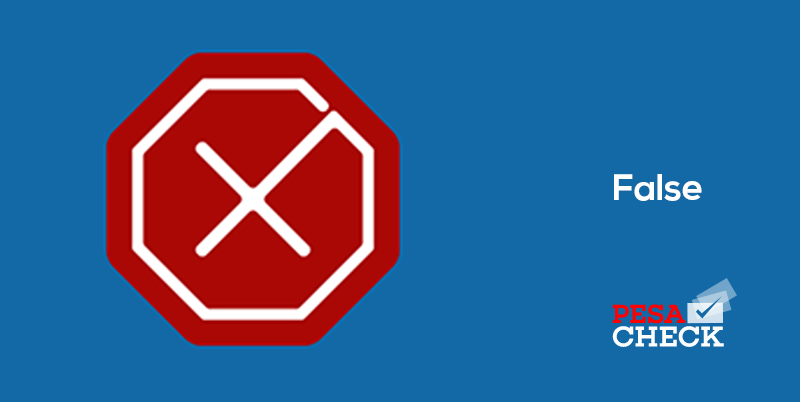
The claim appears to be a misrepresentation of a 2010 debate about a draft provision in the US national health cover dubbed Obamacare.
An Instagram post claiming that Microsoft co-founder Bill Gates called for “Death Panels” to reduce “high medical costs” is FALSE.
The post has a screenshot of an article with a picture of the American billionaire. The headline of the article is, “Bill Gates Tells G20 World Leaders That ‘Death Panels’ Will Soon Be Required.”
The text below Gates’ photo reads: “According to Gates, death panels will be necessary in the near future in order to end the lives of sick and unwell people due to ‘very, very high medical costs’”.
The message accompanying the image reads: “This pyscho (sic) dropped out of college and if you haven’t seen the Microsoft deposition.. Let me tell you it is painful. He literally should have been diagnosed with a mental disorder, however the world trusted him to lead a medical vaccine program with the latest leaving people so sick and suffering. If only the blinders could be removed.”
Neither the post nor the screenshot identifies the G20 summit in which Gates supposedly made the statement.
The 17th G20 summit was held in Bali, Indonesia, on 15–16 November 2022, days before the post was shared.
Gates was in Kenya at the time of the summit for a series of engagements with government officials, researchers, innovators, and students. The visit received widespread media attention as seen here, here, and here.
The American business magnate attended the 2011 G20 summit in Cannes, France, at the invitation of former French President Nicholas Sarkozy.
At the event, Gates never spoke about death panels. Instead, he presented a report on creative ways of finding more money for development aid.
An internet search of the headline of the article brings up a YouTube video containing a similar claim among other conspiracies. “Unelected world health czar Bill Gates has told world leaders that it’s time to start talking about “death panels” that sentence ordinary, law-abiding people to death for the crime of being of no use to the elite,” the description of the video reads in part.
The video bases the claim on a short clip showing Gates in a 2010 interview posted on FORA.tv YouTube Channel. The conversation was between Gates and Walter Isaacson, the president and CEO of the Aspen Institute, where the interview was shot. This confirms that the source of the claim that Gates advocated for a “death panel” was not the G20 summit.
Additionally, a review of the clip reveals that Gates did not say that death panels will be a requirement in the future as claimed by the screenshot in question. While the billionaire did mention the phrase “death panel”, the context was in relation to a debate at the time over a provision in the Affordable Care Act by former US President Barack Obama when it was still at the draft stage.
The provision was meant to allow medical professionals to claim the cost of counselling sessions that addressed end-of-life issues from the US national health cover.
“That’s a trade-off society’s making because of very, very high medical costs and a lack of willingness to say, is spending a million dollars on the last three months of life for that patient, would it be better not to lay off those ten teachers? But that’s called the death panel and you are not supposed to have that discussion,” Gates says in the interview.
Further, the term “death panel” did not even originate with Gates, according to this New York Times article which credits former Alaska Governor Sarah Palin for coining the term in her criticism of the said provision. Palin’s statement was also posted on her verified Facebook page.
So much did the phrase “Death Panel” animate political discourse in the US at the time that fact-checking organisations such as PolitiFact referred to it as the lie of the year.
PesaCheck has examined the claim that Microsoft co-founder Bill Gates called for “Death Panels” to reduce “high medical costs, and finds it to be FALSE.
This post is part of an ongoing series of PesaCheck fact-checks examining content marked as potential misinformation on Facebook and other social media platforms.
By partnering with Facebook and similar social media platforms, third-party fact-checking organisations like PesaCheck are helping to sort fact from fiction. We do this by giving the public deeper insight and context to posts they see in their social media feeds.
Have you spotted what you think is fake or false information on Facebook? Here’s how you can report. And, here’s more information on PesaCheck’s methodology for fact-checking questionable content.
This fact-check was written by PesaCheck senior fact-checker Simon Muli and edited by PesaCheck senior copy editor Cédrick Irakoze and acting chief copy editor Francis Mwaniki.
The article was approved for publication by PesaCheck’s managing editor Doreen Wainainah.
PesaCheck is East Africa’s first public finance fact-checking initiative. It was co-founded by Catherine Gicheru and Justin Arenstein, and is being incubated by the continent’s largest civic technology and data journalism accelerator: Code for Africa. It seeks to help the public separate fact from fiction in public pronouncements about the numbers that shape our world, with a special emphasis on pronouncements about public finances that shape government’s delivery of Sustainable Development Goals (SDG) public services, such as healthcare, rural development and access to water / sanitation. PesaCheck also tests the accuracy of media reportage. To find out more about the project, visit pesacheck.org.
PesaCheck is an initiative of Code for Africa, through its innovateAFRICA fund, with support from Deutsche Welle Akademie, in partnership with a coalition of local African media and other civic watchdog organisations.
